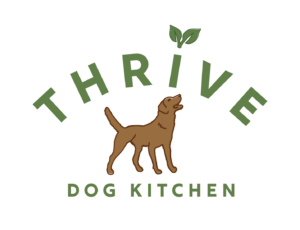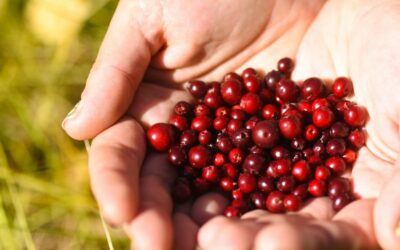Introducing fruits and vegetables into your dog’s diet can significantly enhance their overall health and well-being. While these additions should constitute no more than 25% of your dog’s fresh food intake, they offer a wealth of essential nutrients that complement their diet.
Why Choose Fruits and Vegetables?
Fruits and vegetables offer a range of benefits that aren’t typically found in an all-meat or all-kibble diet. These include:
- Improvements to the Gut Microbiome: Incorporating plant matter can foster a healthier balance of gut bacteria in your dog.
- Rich in Antioxidants, Phytonutrients, and Flavonoids: These vital compounds, exclusive to plant-based foods, contribute to overall health and well-being.
- Excellent Source of Fiber: Fiber supports digestive health and contributes to a robust gut microbiome.
Even the canine ancestors, wolves, and coyotes, have been observed consuming berries in the wild, underlining the natural inclination towards plant matter in their diet.
Choosing the Top 10 Fruits and Vegetables
Selecting the ideal fruits and vegetables for your dog’s diet can be challenging, given the array of beneficial options available. My choices are based on factors such as nutrient profile, accessibility, price, palatability, preparation ease, and sourcing reliability.
Top 5 Fruits for Your Dog
- Blueberries: These tiny powerhouses offer a myriad of benefits, including heart health, brain function, blood sugar regulation, and even tumor inhibition. Rich in antioxidants, they’re readily available year-round in New Zealand and can be served fresh or frozen.
- Feijoa: Abundant in autumn and early winter, feijoas are a cost-effective and nutritious addition to your dog’s diet. They provide Vitamin C, potassium, dietary fiber, and folate, with the option to feed the skin if sourced from a spray-free orchard.
- Apple: Apples boost immunity, combat allergies, improve gut health, regulate bowel movements, and protect against free-radical damage. Accessible year-round, they can be served blended or sliced as a tasty treat.
- Green Bananas: Low in sugar and high in prebiotics, green bananas support gut health and serve as excellent training treats. Despite potential price fluctuations due to climate change, they remain a valuable addition to your dog’s diet.
- Watermelon: A hydrating summer treat, watermelon is rich in lycopene, an antioxidant that safeguards against oxidative stress. Freeze blended watermelon for year-round enjoyment.
Top 5 Vegetables for Your Dog
- Broccoli: Packed with essential nutrients, antioxidants, fiber, and phytonutrients, broccoli aids in preventing oxidative stress, cancer, inflammation, and promotes eye health. It’s easily accessible year-round and can be prepared raw or lightly steamed for optimal absorption.
- Pumpkin: Soothing for the stomach, anti-inflammatory, and rich in soluble fiber, pumpkin supports digestive health and immune function. Serve plain, lightly cooked, and free from additives.
- Cabbage: With anti-cancer properties and rich in Vitamins K and C, cabbage offers a fiber-rich option to support digestion. Raw, cooked, or fermented, it provides versatility in feeding options.
- Courgette: Nutrient-dense and rich in vitamins and minerals, courgette aids in digestion and hydration, especially during summer months. Serve raw or lightly cooked, avoiding leaves and stems.
- Dark Leafy Greens: Spinach, kale, broccoli sprouts, and pak choi are packed with fiber, antioxidants, and essential minerals. However, if your dog is prone to calcium-oxalate crystals, consult with a veterinarian before adding these greens into their diet.
By incorporating these fruits and vegetables into your dog’s diet in moderation, you can provide them with a diverse array of nutrients essential for optimal health and vitality. Remember to observe your dog’s response to each addition to their diet and consult with a veterinarian for any specific dietary concerns.






0 Comments